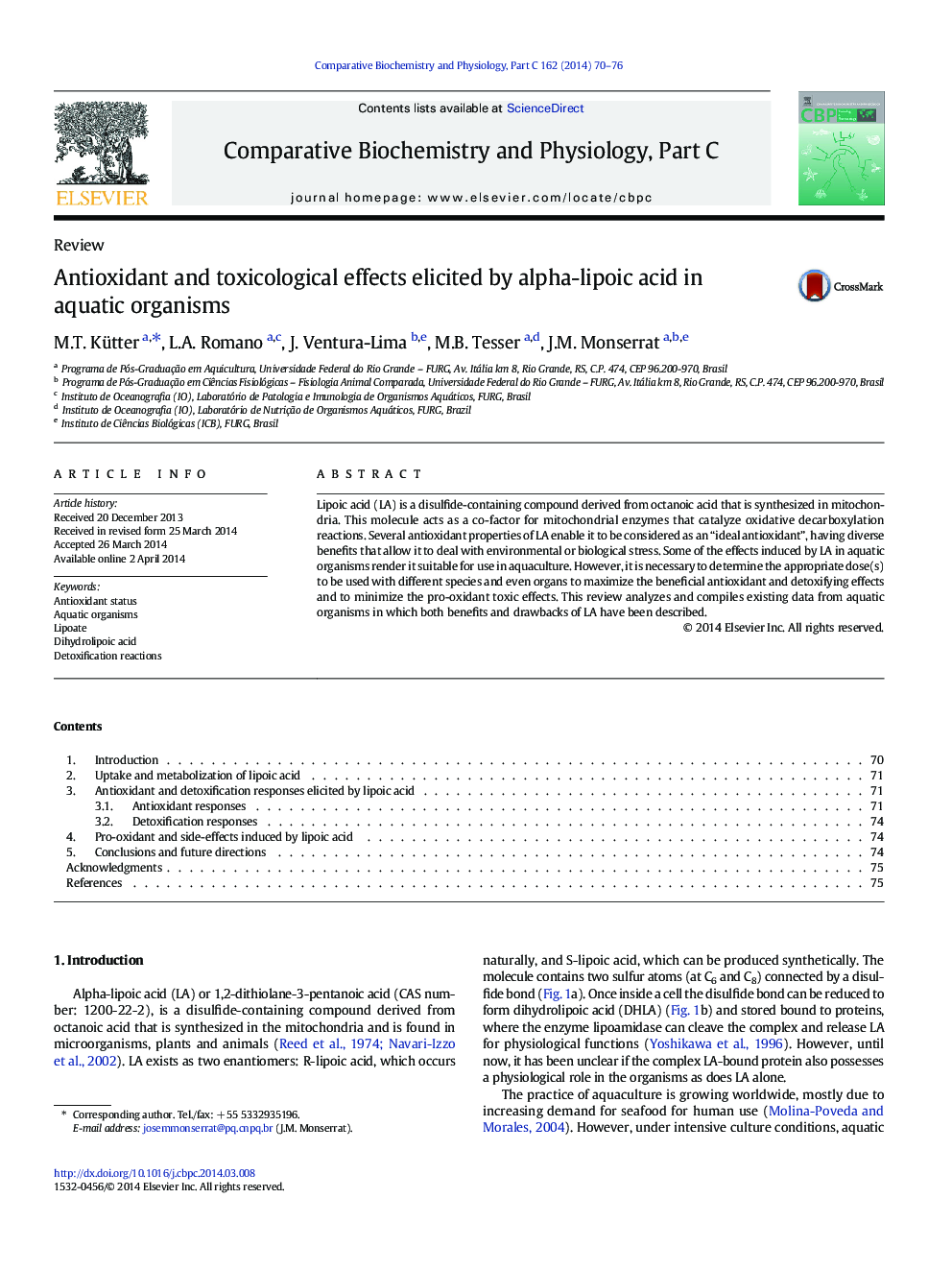| Article ID | Journal | Published Year | Pages | File Type |
|---|---|---|---|---|
| 1977304 | Comparative Biochemistry and Physiology Part C: Toxicology & Pharmacology | 2014 | 7 Pages |
Lipoic acid (LA) is a disulfide-containing compound derived from octanoic acid that is synthesized in mitochondria. This molecule acts as a co-factor for mitochondrial enzymes that catalyze oxidative decarboxylation reactions. Several antioxidant properties of LA enable it to be considered as an “ideal antioxidant”, having diverse benefits that allow it to deal with environmental or biological stress. Some of the effects induced by LA in aquatic organisms render it suitable for use in aquaculture. However, it is necessary to determine the appropriate dose(s) to be used with different species and even organs to maximize the beneficial antioxidant and detoxifying effects and to minimize the pro-oxidant toxic effects. This review analyzes and compiles existing data from aquatic organisms in which both benefits and drawbacks of LA have been described.
